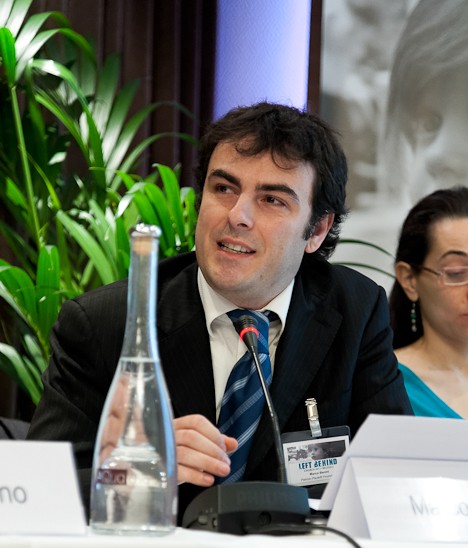CONFERENCE | by Camilla Azzini
Left Behind – Brussels Conference: Marco Benini
 Biographical note:
Biographical note:
Marco Benini, graduated in Education, is an expert of school and out-of-school educational processes and particularly on relational communication and education in emergency situations. From 2000 to 2007 he has been in charge of the educational programmes in residential centers for children and psycho-social support centers for teenager. He also supervised pilot projects of human rights education in schools. Since 2008, he has designs and supervises implementation of education and literacy projects in developing countries and of Lifelong Learning projects in Italy and Europe. He is a professor at the Foundation Paoletti’s High School for Education.
Abstract of presentation:
Social failure and parenting
Why is separation a trauma for a child? ‘Child trauma generally refers to an experience of horror, fear or overwhelming pain, accompanied by a sense of helplessness’ (Krystal 1978).
Krystal’s definition describes well the experience of children left behind and their parents’, forced to leave their children in search of a better future.
A child who faces, for any reason, the forced separation from his/her parents, certainly lives a traumatic experience. This might seriously affects his-her psychological, emotional and cognitive growth, determining a relational dynamic which often influences his/her future.
And what about the parents, forced by their economic conditions in their home country to leave their children to other people’s care? How can their pain be described?
Such a situation represents a double failure: the failure of a society unable to nourish and provide with conditions for its own citizens to develop and grow; and the failure of a family forced to move abroad in order to find what is needed for children.
It is a double abandonment. Society, often too busy with too many problems, do not care enough about adults in need; as a consequence, parents have to move, leaving their children behind. This creates a deep pain, related to a weak hope of reunification, that can be strengthened by a “long thinking” able to respond to new forms of poverty and to old, but always present social issues.
A Pedagogy for the Third Millennium can only take into account environmental factors and the context in which children grow up, as only a proper educational system, set by institutions and “care givers” can provide tools to face the phenomenon of children left behind, wherever it occurs.
Download the Power Point presentation

